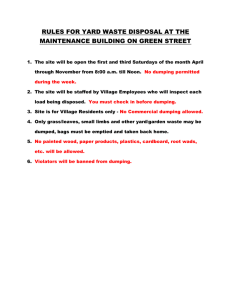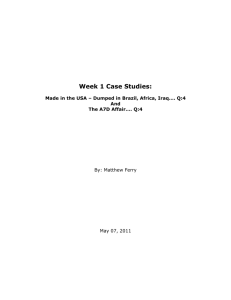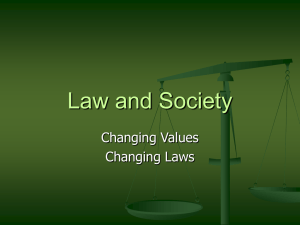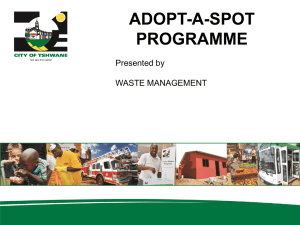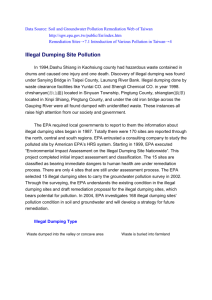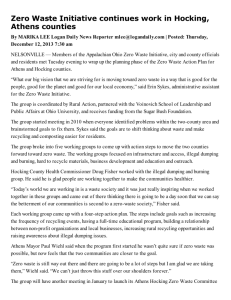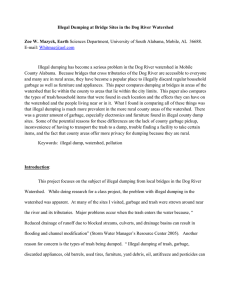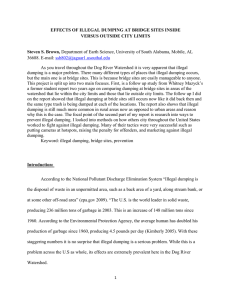Statement by the City’s Executive Mayor, Patricia de Lille Enforcement
advertisement
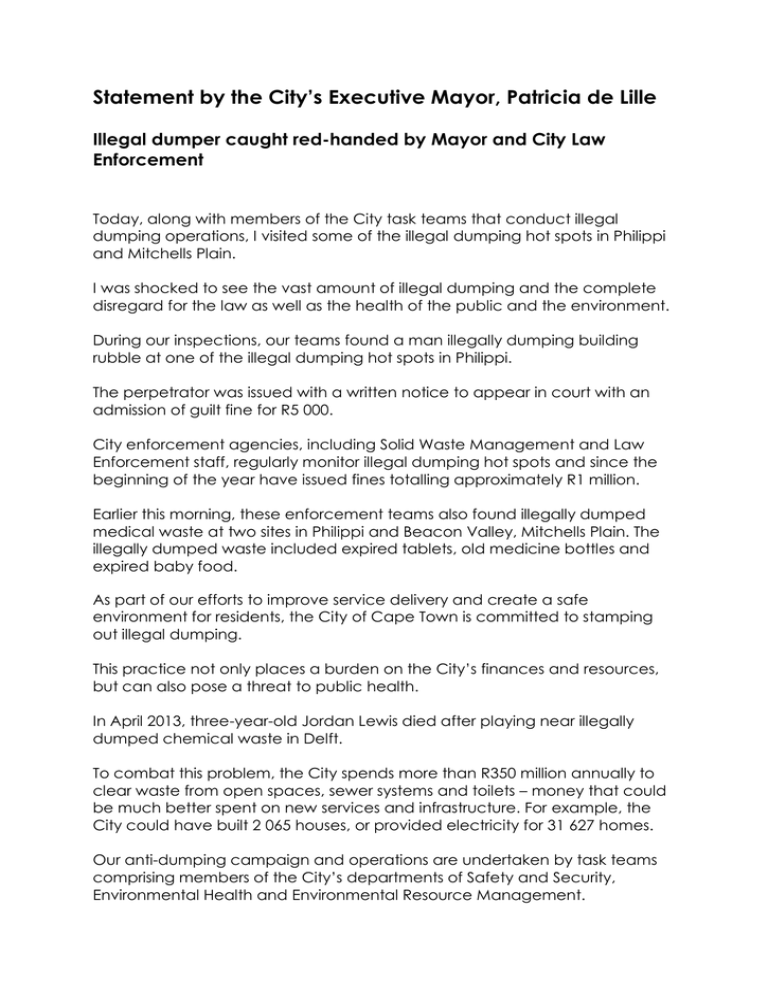
Statement by the City’s Executive Mayor, Patricia de Lille Illegal dumper caught red-handed by Mayor and City Law Enforcement Today, along with members of the City task teams that conduct illegal dumping operations, I visited some of the illegal dumping hot spots in Philippi and Mitchells Plain. I was shocked to see the vast amount of illegal dumping and the complete disregard for the law as well as the health of the public and the environment. During our inspections, our teams found a man illegally dumping building rubble at one of the illegal dumping hot spots in Philippi. The perpetrator was issued with a written notice to appear in court with an admission of guilt fine for R5 000. City enforcement agencies, including Solid Waste Management and Law Enforcement staff, regularly monitor illegal dumping hot spots and since the beginning of the year have issued fines totalling approximately R1 million. Earlier this morning, these enforcement teams also found illegally dumped medical waste at two sites in Philippi and Beacon Valley, Mitchells Plain. The illegally dumped waste included expired tablets, old medicine bottles and expired baby food. As part of our efforts to improve service delivery and create a safe environment for residents, the City of Cape Town is committed to stamping out illegal dumping. This practice not only places a burden on the City’s finances and resources, but can also pose a threat to public health. In April 2013, three-year-old Jordan Lewis died after playing near illegally dumped chemical waste in Delft. To combat this problem, the City spends more than R350 million annually to clear waste from open spaces, sewer systems and toilets – money that could be much better spent on new services and infrastructure. For example, the City could have built 2 065 houses, or provided electricity for 31 627 homes. Our anti-dumping campaign and operations are undertaken by task teams comprising members of the City’s departments of Safety and Security, Environmental Health and Environmental Resource Management. The City is also amending its by-laws to enable the impounding and forfeiture of vehicles used in dumping. This measure is used internationally and has proven to be very effective in deterring illegal dumping. Although illegal dumping occurs across the city, there are certain hotspots where the problem is more prevalent, such as Nyanga, Philippi, Mitchells Plain and Epping Industria. Today we saw how, despite our monitoring and regular operations, perpetrators continue to show little regard for the law, or for public and environmental health. We have therefore shifted our focus from being reactive, to taking a more proactive approach. We simply cannot keep spending money on a problem that is 100% avoidable. In March this year, we announced that cash rewards of up to R1 000 would be offered for information that leads to a positive outcome against criminal activity, including illegal dumping. It is only through the support and help of our communities that our efforts can have a greater impact. Help us stop illegal dumping by reporting problems and reporting the perpetrators so that those acting illegally can be brought to book. Residents can use the following methods to report illegal dumping: Call 021 400 6157 or send an e-mail to solidwaste.bylaw@capetown.gov.za Contact the City’s call centre on 0860 103 089 There is no reason for residents to dump waste illegally. The City has 25 waste drop off-sites around the metro for the proper disposal of waste. Residents can visit the City’s website or their local sub-council office for a list of waste drop-off sites: http://www.capetown.gov.za/en/Solidwaste2/Pages/Dropoffandrecyclingp oints2.aspx
